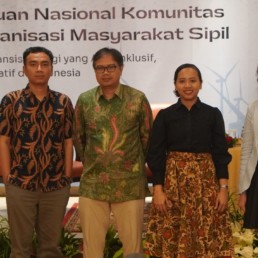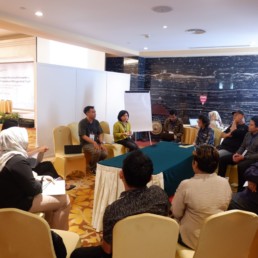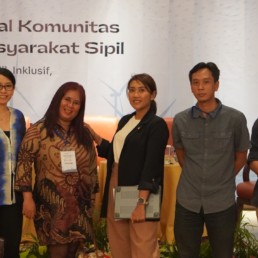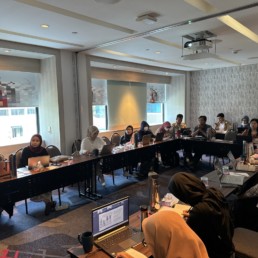Introduction
A rapid and transformative energy transition has become a global issue, and countries, including Indonesia, are pushing for an immediate shift to renewable energy. The Indonesian government aims to achieve a zero-emission economy by 2060 and 2050 in the energy sector. However, the projection of renewable energy in Indonesia’s national energy mix is only 24 percent by 2030, which is not ambitious enough if Indonesia wants to keep the global temperature at 1.5°C. In addition, there are concerns that the Just Energy Transition Partnership (JETP) scheme will be used to support false solutions that continue to support the sustainability of the coal industry. Also, women and girls from low-income households may be disproportionately affected by the lack of access to clean and affordable energy. Therefore, this project aims to promote gender equity and inclusiveness as indicators for a just energy transition in Indonesia.
The objectives of this project are:
(i) To promote gender equity and inclusiveness as indicators in a just energy transition;
(ii) Strengthen the knowledge of civil society organizations at the national and local levels on gender and inclusiveness aspects in a just energy transition.
Expected results:
(i) Dissemination of the narrative of gender mainstreaming and inclusiveness in a just energy transition in Indonesia.
(ii) Increased knowledge of stakeholders at the local and national levels on aspects of equity in the energy transition.
Activity
- Focus Group Discussions (FGDs) at local and national levels: A series of FGDs were organized to formulate aspects of gender equality and inclusion in energy transition planning. The FGDs targeted stakeholders at the local and national levels, particularly the central government, legislators, academics, civil society organizations (CSOs), women’s groups, range groups, and communities at the site level. The FGDs brought stakeholders together to discuss and develop gender and inclusiveness indicators for the energy transition.
- Policy Paper Writing: An analytical paper was written to promote the mainstreaming of gender equity and inclusiveness in the energy transition. The document serves as a baseline paper that the government and other stakeholders can utilize to understand what indicators should be in place to ensure that women and other vulnerable groups do not experience repeated and multiple inequalities and are left out of the energy transition process. The study was disseminated to stakeholders at the local and national levels, including government, CSOs, women’s groups, and communities.
- PWYP Knowledge Forum (PKF): A webinar was organized to disseminate the narrative of gender mainstreaming and inclusiveness in a just energy transition. The webinar targeted stakeholders at the local and national levels, including CSOs, think tanks, academics, women’s groups, organizations of persons with disabilities (DPOs), and communities.
- Campaign activities: A series of activities to raise public awareness of the importance of gender and inclusion as indicators of a just energy transition through IG Live, PWYP Knowledge Corner, and podcasts.
- Organizing a national meeting by inviting communities affected by coal power plant projects and/or energy transition projects to share their stories and recommendations for realizing a just energy transition in Indonesia.
The series of activities in this project were carried out during April – June 2023 by involving the #Bersihkan Indonesia Coalition network, relevant Ministries / Institutions such as the Ministry of Energy and Mineral Resources and the Ministry of Women’s Empowerment and Child Protection, women’s groups, DPOs, and communities at the site level.



